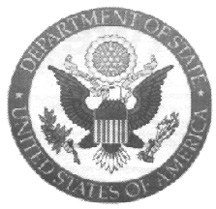After the unfortunate Caribbean Airlines crash at Cheddi Jagan International airport on July 30, questions have come up as to the role of the US Embassy in a crisis. This Ask the Consul installment covers some of the things the US Embassy can and can’t do in a crisis.
What happens when a U.S. citizen is injured overseas?
In the case of an injured U.S. citizen abroad the US Embassy in Georgetown will do all it can to assist the injured person and, if requested, notify family members or friends.
What if the injured person is not a US Citizen, but a Legal Permanent Resident (LPR)?
 The US Embassy is not required to provide assistance and/or services to Legal Permanent Residents (LPR). Nevertheless, under certain circumstances, the Embassy may extend limited services to LPRs who are immediate family members of US Citizens and who are traveling with US Citizens. The US Embassy is always striving to help those in need and when possible, will provide assistance.
The US Embassy is not required to provide assistance and/or services to Legal Permanent Residents (LPR). Nevertheless, under certain circumstances, the Embassy may extend limited services to LPRs who are immediate family members of US Citizens and who are traveling with US Citizens. The US Embassy is always striving to help those in need and when possible, will provide assistance.
What if the US Citizen has no money as a result of the crisis? Will the Embassy give them money?
The US Embassy cannot provide any funds for the U.S. Citizen. The Embassy can, however, assist in receiving private funds from the U.S. destined for the injured U.S. citizen. It can also help facilitate provision of medical history.
When necessary, the State Department assists in arranging the return of the injured U.S. citizen to the U.S. with appropriate medical escort, via commercial air ambulance. The full expense must be borne by the injured U.S. citizen, his or her family or their private insurance provider.
The Embassy advises U.S. travelers to purchase a short-term insurance policy. There are health insurance policies designed specifically to cover travel. Many travel agents and private companies offer insurance plans that will cover health care expenses incurred overseas, including emergency services such as medical evacuations. This coverage may also be included in a pre-existing policy or coverage may be added for an additional fee.
Can the U.S. Government pay overseas hospital or doctor bills?
The payment of the hospital or doctor bills is the responsibility of the traveler. Embassy consuls can assist U.S. citizens who become physically or mentally ill while traveling by locating family members, guardians, and friends in the U.S., and assist in transmitting private funds, and, when necessary, assist in arranging the return of ill or injured U.S. citizens to the U.S. by commercial carrier.
Please note that U.S. medical insurance may not be accepted outside the United States, nor do the Social Security Medicare and Medicaid programs provide coverage for hospital or medical costs outside the United States.
Please see the information in the section above regarding short-term, travelers’ insurance.
Can the U.S. citizen receive medical treatment at the embassy or consulate?
Our medical facilities abroad are not registered with the local government or staffed as public-use/care medical facilities. However, our consular officers overseas can provide information on where it is possible to obtain medical help in the country where a U.S. citizen has been injured.
What would happen if a U.S. citizen dies overseas?
Along with locating and informing the next of kin, we offer our condolences to the deceased person’s family. If the death occurs under unusual circumstances, the Embassy can assist the family in making contact with the local officials investigating the case.
The State Department in the U.S. provides guidance to family members on how to make arrangements for local burial or return of the remains to the United States.
The disposition of remains is affected by local laws, customs, and facilities, which are often quite different from those in the United States. The U.S. Embassy is available to help family members navigate this process.
The Department of State has no funds to assist in the return of remains or ashes of U.S. citizens who die abroad but can help facilitate use of private funds for this purpose.
Who would issue the Death Certificate?
Upon completion of all formalities, the consular officer at the US Embassy prepares an official Consular Report of Death Abroad, based upon the local death certificate, and sends it to the next-of-kin or legal representative in the United States for use in settling estate matters.
What happens with the deceased person’s effects in Guyana?
In some cases, a U.S. consular officer acts as provisional conservator for the personal estate of a U.S. citizen who dies abroad if the deceased has no legal representative in the country where the death occurred. This only pertains to the portion of the personal estate located abroad.
The officer prepares an inventory and appraisal for the items, among other functions.
***
“Ask the Consul” is a fortnightly column from the U.S. Embassy answering questions about U.S. immigration law and visa issues. If you have a general question about visa policy please email it to us at [email protected]. We select questions every other week and publish the answers in Stabroek News and on our website at http:// georgetown.usembassy.gov/ask-the-consul.html . Information about visas and travel can be viewed at http://georgetown.usembassy.gov, http://travel.state.gov, and at http://www.dhs.gov. Applicants are strongly encouraged to prepare their own documents and avoid third-party advice. U.S. Consular rules change frequently and non-US government advisors often provide inadequate or inaccurate information.
Other than the questions we select, we DO NOT respond to questions sent to Ask the Consul. Please contact the visa inquiries unit (email [email protected] or call 225-7965 between 8 am and 4 pm Monday through Friday) if you have questions about a specific case.








